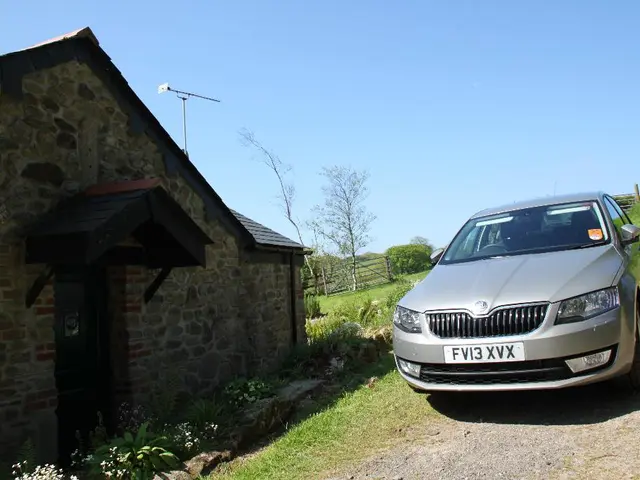Koblenz Unveils Solar Car Park Project for Moselbad Pool
Koblenz Baths GmbH, Mayor David Langner, and Wi SOLAR Bau GmbH have unveiled plans for a modern photovoltaic project in Rhineland-Palatinate. The project, funded with one million euros from the KIPKI program, aims to install a solar system at the Moselbad car park, providing weather protection for visitors and vehicles.
The PV system, with a total capacity of around 399 kWp, is expected to generate an annual yield of 368,569 kWh. This clean energy will be used for the self-consumption of the municipal indoor pool, reducing reliance on traditional power sources. The project is set to save up to 173,200 kg of CO2 annually.
The construction work is underway and scheduled to be completed by the end of the year. Once finished, the new operation of the car park will start at the beginning of 2026. Notably, the parking operation will not be restricted during the construction phase. The car park, which currently has 137 spaces, will see 104 of these covered with a steel structure and equipped with 896 solar modules. This expansion follows the success of the Moselbad, which attracted over 190,000 visitors in its first year after opening. The million-dollar loan for this climate protection project was provided by the state bank Investitions- und Strukturbank Rheinland-Pfalz (ISB).
The completion of this project will not only provide weather protection for Moselbad visitors and vehicles but also contribute significantly to the city's renewable energy goals. The solar power generated will directly benefit the municipal indoor pool, reducing its carbon footprint and demonstrating Koblenz's commitment to sustainable practices.
Read also:
- Emerging Investment Trends in China's Ethical Finance Sector for 2025
- Construction and renovation projects in Cham county granted €24.8 million focus on energy efficiency
- Colombia's Court Abolishes Local Referendums on Land Use, Sparking Mining Sector Concerns
- Trump challenged in court over halting billions in funding for electric vehicle charging infrastructure







